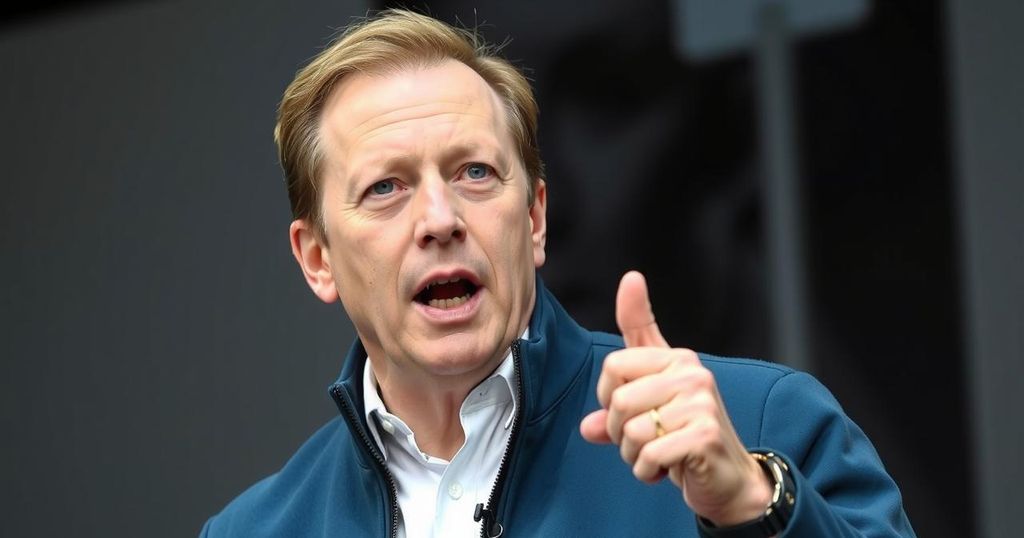Elon Musk’s Support for Germany’s AfD: Implications and Controversies

Elon Musk endorsed Germany’s AfD in an op-ed, claiming it can save the nation from crisis. His support sparked widespread backlash from politicians and media, questioning the appropriateness of foreign influence in German politics. Criticism highlights concerns over media integrity and the implications of using powerful platforms to shape political narratives ahead of elections.
On December 30, 2024, Elon Musk publicly endorsed Germany’s far-right Alternative for Germany (AfD) party in an op-ed for Welt am Sonntag, claiming the party offers the only hope for Germany amidst economic and cultural crisis. Musk asserted that the AfD’s immigration policies and market strategies could revive the nation’s economy. His remarks have been met with intense backlash from various political figures and media groups, who criticized his interference in German politics and questioned the motives behind his support. The backlash included the resignation of a senior editor at Welt am Sonntag, highlighting concerns over media integrity amidst the growing influence of prominent figures like Musk.
The AfD is currently polling at 20%, making it a significant power ahead of the upcoming legislative elections. Critics, including prominent political leaders, have expressed fears that Musk’s influence could destabilize democratic structures in Germany. The controversy raises vital questions about the role of media and foreign individuals in influencing political discourse, particularly in electoral contexts.
Musk’s op-ed selection, likely influenced by Welt’s ownership by Axel Springer, prompts discussions about how media entities can amplify populist agendas and who benefits from such endorsement. With Musk’s own business interests potentially at stake in German regulatory changes, the intersection of politics and profit is apparent, raising ethical inquiries regarding the promotion of political candidates by influential global figures.
The discourse surrounding Musk’s endorsement indicates a larger pattern where powerful individuals harness their platforms to sway political narratives, suggesting a global trend towards the normalization of right-wing politics.
Musk’s backing of the AfD may be part of a broader ambition to reshape political landscapes, considering his financial contributions to right-leaning political groups in other countries. This situation encapsulates the continuing debate about media responsibility and the impacts of political endorsements in an increasingly interconnected world.
The endorsement of the AfD by Elon Musk is significant in the context of the upcoming German elections, where the political landscape is highly polarized. The AfD, characterized as a far-right populist party, has gained substantial traction, polling at approximately 20%. The endorsement by a global figure like Musk raises questions about foreign influence in domestic politics, especially given the historical context of far-right movements in Germany. This situation has prompted public outrage and media scrutiny over Musk’s interests and the role of the press in promoting particular political agendas, which could shift public perception and electoral outcomes.
Elon Musk’s endorsement of the AfD has ignited substantial controversy and criticism regarding foreign interference in German politics. It raises ethical questions about the role of influential individuals in shaping political discourse, particularly in election periods. As the political climate becomes more polarized, the implications of such endorsements could have lasting effects on the democratic process in Germany and potentially beyond, prompting an urgent reevaluation of media responsibilities in an age of rising populism.
Original Source: www.dw.com








